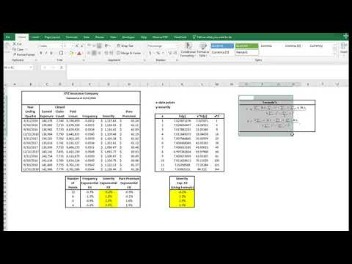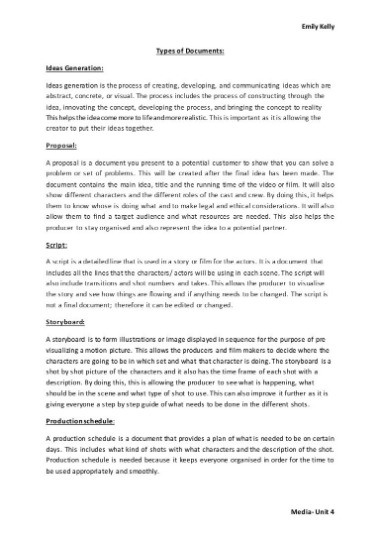
Click here to extend your session to continue reading our licensed content, if not, you will be automatically logged off. These materials were downloaded from PwC’s Viewpoint (viewpoint.pwc.com) under license. The guidance for determining scrap value and life expectancy can be ambiguous. So, investors should be wary of overstated life expectancies and scrap values.

Depreciation also represents how much of an asset’s value a company has used since its acquisition. Depreciation expenses are also an advantage for the company from a tax point of view. The depreciation amount is credited to the cumulative depreciation account, which is accounted for under the company’s Balance Sheet.
Non-Operating Expenses FAQ
An asset’s original value is adjusted during each fiscal year to reflect a current, depreciated value. All-in-one accounting software, Akounto, assists companies in analyzing accrued expenses by creating a separate account that records how much money the company owes and when the payments are due. We assist small businesses in recording and tracking expenses efficiently.
Is Bunge (NYSE:BG) A Risky Investment? – Simply Wall St
Is Bunge (NYSE:BG) A Risky Investment?.
Posted: Mon, 04 Sep 2023 13:22:26 GMT [source]
Operating expenses are different from expenses relating to, for example, investing in projects and borrowing. Depreciation is a method to spread an asset’s cost over several periods. Usually, companies can choose between various approaches to the process.
6 Operating expenses
Sometimes, companies may use the same asset for various purposes. In these cases, it is challenging to determine whether depreciation is an operating expense or not. Since depreciation satisfies the criteria this definition sets, it is an expense.
Hormel Foods Reports Third Quarter Fiscal 2023 Results – hormelfoods.com
Hormel Foods Reports Third Quarter Fiscal 2023 Results.
Posted: Thu, 31 Aug 2023 06:47:06 GMT [source]
Hence, since depreciation is charged on an asset that’s used for day-to-day business operations it is covered under operating expense even though it’s a non-cash expense. The depreciation will appear under operating expenses if the resource relates to operating activities. Separating those assets is crucial for companies to report an accurate amount.
Join PRO or PRO Plus and Get Lifetime Access to Our Premium Materials
Operating expenses are the costs relating to the running of your business on a day-to-day basis. They include wages, overheads and all other costs that are necessary to keep the business running, and are normal expenses. The depreciation can be treated as a non-operating expense only in specific circumstances where the assets are not used for the main operations of the business. When such an asset is used for an incidental operation then we treat depreciation as a non-operating expense. In contrast, depreciation also applies to other assets that do not contribute to core activities. These may include items such as office equipment or building.
Depreciation of the value of an asset is almost definitely an operating expense for your business, and while you can not stop it coming, you can certainly plan for it. By planning, you can avoid the worst of the effects of depreciation on your business and keep everything running smoothly and comfortably. You have an entity providing financial services to your clients. At the time of the commencement of the operations you had 25 employees and laptops being the core assets of your business, were purchased by you for your team initially. These resources may be a part of different areas for operations. For example, some relate to the production activities performed by a company.
The Accounting University with 3400+ Accounting contents as study material which can watch, read and learn anyone, anywhere.
Depreciation expenses write off the value of the fixed asset (including intangible assets like licenses, patents, etc.) over its useful life. Depreciation typically allows the company to pay for the assets over a certain period. Understanding how depreciation works is crucial for accurate financial reporting and effective tax planning. By properly accounting for depreciating assets, businesses can make informed decisions regarding their capital expenditures and overall procurement strategy.
- Choosing between these methods can be challenging as each has unique benefits and drawbacks.
- High operating income provides your business with cash for working capital needs and other expenses to keep business going.
- Depreciation of the value of an asset is almost definitely an operating expense for your business, and while you can not stop it coming, you can certainly plan for it.
- This article is about depreciation, non-operating expenses, and how depreciation becomes a non-operating expense.
CapEx includes costs related to acquiring or upgrading capital assets such as property, plant, and equipment. These expenses, unlike operating expenses, can be capitalized for tax purposes. The IRS has guidelines related to how businesses must capitalize assets, and there are different classes for different types of assets. Depreciation expense is reported on the income statement as any other normal business expense.
Companies usually expense those assets out in the same period as they help generate revenues. Nonetheless, depreciation is crucial to reducing an asset’s carrying value and spreading it. Companies can also spread the cost of intangible assets across various periods. A fixed cost is set for a fixed period of time; it doesn’t change. It typically relates to recurring expenses such as rent, interest payments, insurance payments, and bank fees.
Depreciation as an Operating Expense
It makes the assumption that the depreciation expense of the asset stays at a constant level for every year the asset has been or was used. So, every year it moves downward in depreciation at the same rate. Normally, it is not really explained and those outside the loop are disposal of fixed assets: how to record the journal entry left to flounder. Well, fear not for we are here to answer the business partner’s most urgent questions, the main one today being what is depreciation? Some variation in production levels from period to period is expected and establishes the range of normal capacity.
However, it indirectly impacts cash flow by reducing taxable income which may lower tax liability. Operating expenses are the costs that a company incurs while performing its normal operational activities. Operational activities are those tasks that must be undertaken from day to day to operate the business and generate revenue.
Under this statement, accumulated depreciation is a part of the business’s operating expenses. A noncash expense is an expense that is reported on the income statement of the current accounting period but there is no related cash payment during the period. A fixed asset is an asset that a business uses to earn income.